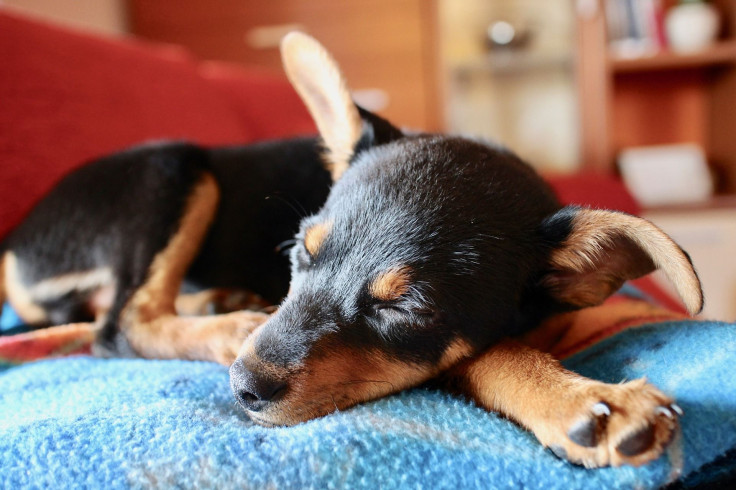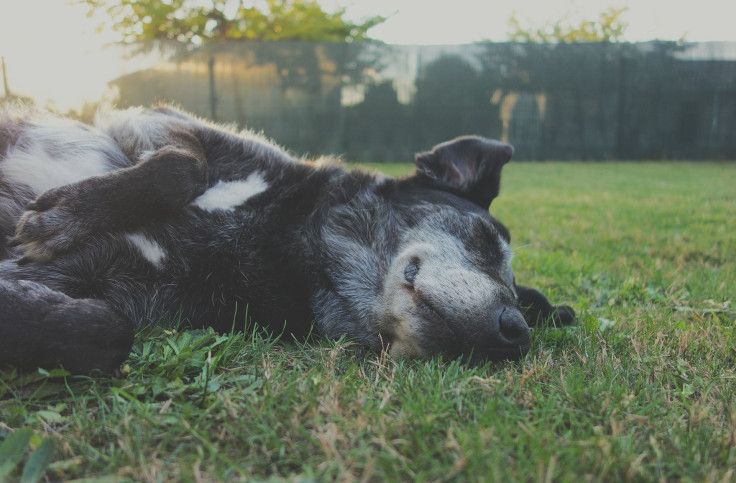Study: Dogs Don’t Sleep Well After Stressful Days, Just Like Humans

Dogs lose sleep over things that happen during their day, just like humans do, a new study suggests.
When researchers played with dogs and did other activities the pooches were known to enjoy, the dogs’ sleep was different from the kind they had after negative emotional experiences, according to a study in the journal Proceedings of the Royal Society B: Biological Sciences. The stressed dogs did not get as much deep sleep as their happy counterparts across their naps.
Humans may stay up at night thinking about the negative experiences of their day and dogs react to those situations as well during their night — but they show it in a different way.
“Sleep is of vital importance for human emotional well-being,” the study says. “Daytime events, especially emotionally stressful events, have an impact on sleep quality and well-being.”

In people, that can mean taking a longer time to fall asleep and a reduced sleep efficiency.
With canines, it appears that they go to sleep faster after negative experiences but then spend less time in a deep sleep.
This was based on experiments with 16 dogs of different breeds. The researchers engaged in either positive or negative social interactions with the dogs and then allowed them to snooze for three hours, measuring their brain waves during that rest period. Positive interactions included playing with a ball and being petted and negative interactions could be things like separation from their owner or being approached threateningly by a researcher.
“Sleep macrostructure was markedly different between pre-treatment conditions,” the researchers wrote in their study, from how quickly it took the dogs to go to sleep to how much time they spent in different stages of sleep.
According to the researchers, humans and lab rats are often focuses of sleep research but there isn’t much known about sleep in dogs, which they called “a species proven to be a good model of human social cognition.”
The ones in the experiment may have gone to sleep faster after emotional stress as a coping mechanism — the study notes that it could be “protective sleep in response to stress” similar to the way humans go to sleep when they are sick, as part of their immune system’s response to the illness.
Specifically, the stressed dogs went to sleep twice as fast as the other group, according to a report on the research.
Scientists might eventually dig deeper into dog sleep patterns, looking to find variation between different kinds of dogs.
“The investigation of further individual differences, such as age or emotional reactivity, will be an important further step,” the study says. “Breed and morphology in general might be of particular interest as dogs show considerable variability in their skull shape that is known to co-vary with both brain morphology and behaviour.”
These findings could be useful in veterinary science and to people who are concerned with animal welfare.

© Copyright IBTimes 2024. All rights reserved.





















